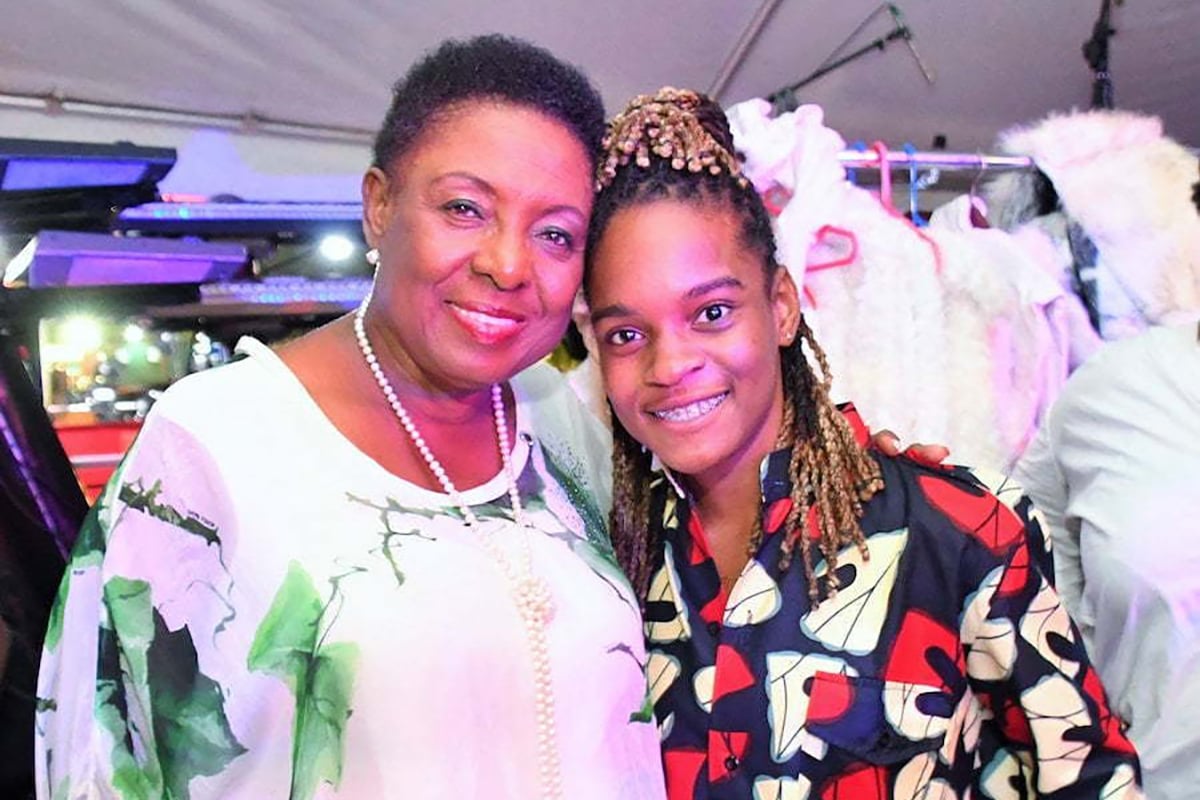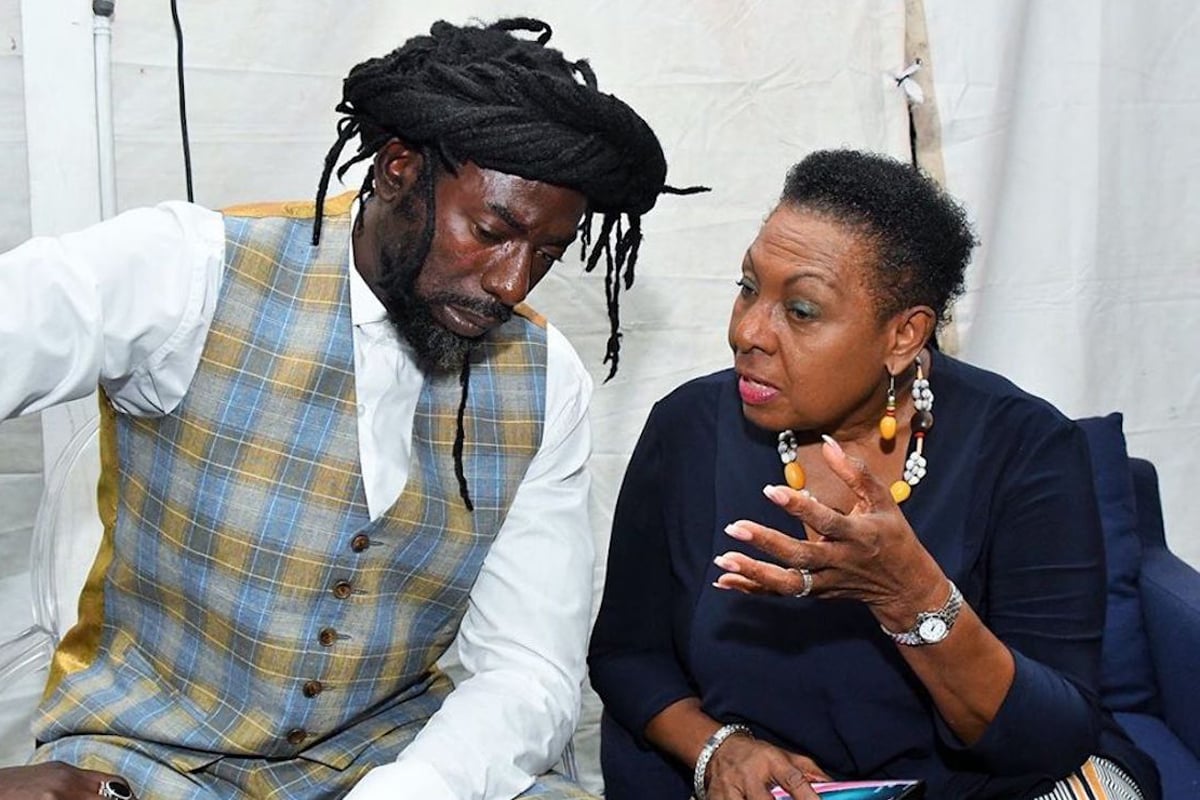Reggae Cannot Be “Taken Away” From Jamaica, Says Minister Babsy Grange

Entertainment and Culture Minister Olivia Grange has assured Jamaicans that Reggae cannot be “taken away” from the country, as it is safeguarded under UNESCO’s Representative List of the Intangible Cultural Heritage of Humanity, and so there is no need for foreign Reggae creators to be viewed with disdain.
She was responding to questions in a Television Jamaica interview on Wednesday, regarding the fact that Europeans, Americans, and Africans are filling the void “since the requests for positive music are falling on deaf ears.”
“What we have nobody can take away from us,” the Minister stated.
“We have given it (Reggae) to the world. We had it inscribed by UNESCO on the Intangible Cultural List of Humanity…. We have penetrated all corners of the world, so if others take it and embellish it or make that much more out of it for their market, I don’t have a problem with that because nobody can take our space. Our space is our space; our music is our music. And they say imitation is the greatest compliment…,” she added.
Reggae became the second Jamaican element’ to be inscribed on the Representative List of the Intangible Cultural Heritage of Humanity, back in November 2018, five years after that of the Maroon Heritage of Moore Town in Portland.

The decision on Reggae, was made at the 13th session of the UNESCO Intergovernmental Committee for the Safeguarding of the Intangible Cultural Heritage in the Republic of Mauritius following a strong lobby and advocacy by the Government of Jamaica, led by Minister Grange herself.
In inscribing Reggae Music of Jamaica, the United Nations noted that: “Having originated within a cultural space that was home to marginalized groups, mainly in Western Kingston, the Reggae music of Jamaica is an amalgam of numerous musical influences… While in its embryonic state Reggae music was the voice of the marginalized, the music is now played and embraced by a wide cross-section of society, including various genders, ethnic and religious groups”.
“Its contribution to international discourse on issues of injustice, resistance, love and humanity underscores the dynamics of the element as being at once cerebral, socio-political, sensual and spiritual. The basic social functions of the music – as a vehicle for social commentary, a cathartic practice, and a means of praising God – have not changed, and the music continues to act as a voice for all…” UNESCO noted.
Despite the UNESCO inscription, concerns have been raised in recent times by some members of the music industry that Reggae music has been expropriated by foreign countries such as France, which, in some cases, has been deemed the Reggae capital of the world.
In March 2021, Head of the Institute of Caribbean Studies at the University of the West Indies (UWI), Dr. Sonjah Stanley Niiah, had pointed out that Jamaica might need to undergo another Reggae Revival very soon, as the genre was under threat of being arrogated by other countries, as it appeared the nation’s artists were, once again steering clear of recording songs within the genre.
Jamaica’s Reggae Revival movement, which was considered a breath of fresh air from the crassness which had taken a stranglehold on Dancehall, began around 2010 to give life to what many had described as a dying genre, which was not only losing its appeal, but was no longer capable of captivating the youth, who were moving towards American hip hop and trap music.
Under the Reggae Revival movement, artists such as Chronixx, Iba Mahr, Protoje, Jesse Royal, and Kabaka Pyramid, were at the forefront of a style of music that infused elements of 1980s Dancehall into Roots Rock Reggae, to spread positivity as well as shed light on the social ills of Jamaican society.
But Dr. Stanley Niaah had argued back in 2021, that Jamaican Reggae faced an imminent threat due to the actions of its own countrymen, in both academia and the music industry itself.
The senior lecturer, whose publications include the books Dancehall: A Reader on Jamaican Music and Culture, Reggae Pilgrimages: Festivals and the Movement of Jah People and Dancehall: From Slave Ship to Ghetto, had said, among other things, that it ought not to be left the UWI alone to be able to offer programmes in Reggae studies.
Instead, she said, every institution in Jamaica at the primary, secondary and tertiary levels, should be looking at ways and means to transmit knowledge about Jamaican music, and “on what Jamaicans have given the world.”
“Because guess what? In a few years, time we will be hearing that Japan, France, Germany – all of these places – all of the major festivals are happening in these places and as soon as COVID is over and the festivals go back into full swing, and the production of Reggae music gets back into focus; because Jamaica is no longer interested in producing Reggae for example, or we need another Reggae Revival – you gonna hear about those countries as the centres of Reggae production and consumption,” Dr. Stanley Niaah had stated.
Additionally, during his sermon at the launch of Reggae month, two Sundays ago, Pastor of the Fellowship Tabernacle in Kingston, Reverend Al Miller in predicting that Jamaica will begin to make its rightful money from Reggae music, similar to France and Japan, had commented on the “takeover” of Reggae by foreign countries such as France and Japan.
“Yuh si all di millions weh di French man dem a meck outta di Reggae an we naw meck none. Come on man meck wi face it…”
“Mi hear seh all when yuh guh a Japan… when yuh hear how much millions Japan a meck outta di Reggae. All di Chiney man dem een pan it too. How much di French a meck outta Reggae; an how much we a meck?”
Continued the pastor: “No man. Wi haffi wake up and see what we need to do…. Wi naw trouble dem enuh. Meck dem do weh dem a do, but wi ongle a seh ‘a fi wi’. Suh wi haffi get a likkle piece…”
